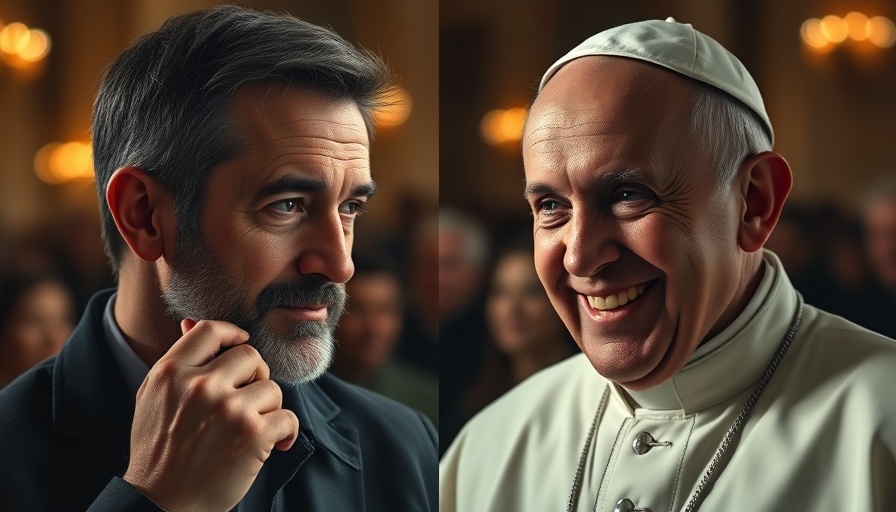
The Legacy of Pope Francis: A Transformative Figure in the Catholic Church
Pope Francis, renowned for his progressive stances and open dialogue, has undoubtedly changed the landscape of the Catholic Church during his tenure. While news of his passing sends shockwaves across the globe, it also prompts deep reflections on his impact and the intricate web of issues he navigated as the leader of over a billion Catholics worldwide.
In 'Pope Francis Dead, What Comes Next?', the discussion dives into the future of the Catholic Church, exploring key insights that sparked deeper analysis on our end.
What Comes Next for the Catholic Church?
The passing of Pope Francis brings forth a pivotal question: what will be the future of the Catholic Church without his guidance? His emphasis on compassion for the marginalized, combined with calls for modernization within the Church, has garnered both support and criticism. Conservatives may wonder whether his successor will continue his progressive path or revert to traditional doctrines.
The Intersection of Faith and Current Events
Current events play a crucial role in understanding Pope Francis's approach. Under his papacy, significant global challenges arose, including economic inequality, climate change, and immigration. His views often aligned with progressive values, resonating with advocates for social justice. For conservatives, this offers an opportunity for dialogue on how these issues relate to established principles of democracy, family, and faith.
A New Leader in the Making: Who Will Fill the Shoes?
As the Catholic Church looks for a new leader, speculation arises about potential candidates. Some may lean towards individuals with conservative backgrounds, likely aiming to align Church teachings more closely with traditional values. This shift could potentially foster new discussions regarding pivotal topics such as freedom, abortion, and the Church’s stance on modern economic policies affecting families in America.
The Power of Unity and Division
The Catholic Church faces challenges of unity and division amid changing societal norms. Some followers may embrace a new pope who reflects the conservative values of family and tradition, while others might long for the inclusiveness Pope Francis championed. This divide is not just a Church issue but a reflection of broader American society, where political affiliations often influence personal beliefs.
Impact on American Politics
Pope Francis's death could intersect with American politics, especially in a nation rife with differing ideologies. Conservative figures such as Donald Trump and Ben Shapiro often emphasize family values and freedom, ideologies that may resonate with potential new leaders of the Catholic Church. This dynamic could spark interest in how Church doctrines might influence or reshape political discourse in the coming years.
The Voices of the Faithful: What Do They Say?
As the Catholic community grapples with this loss, the voices of laypeople—the family members, neighbors, and communities—will play a significant role. Many will recall how Pope Francis spoke about love, compassion, and service. For the expecting faithful or those concerned about social issues like inflation, taxes, and healthcare, these themes remain crucial. They compel society to consider its responsibilities to each other, fostering a sense of collective accountability.
Conclusion: A Call for Reflection and Dialogue
As we await the new chapter for the Catholic Church, one thing remains clear: Pope Francis's legacy continues to inspire conversation, reflection, and potential transformation in both religious and political spheres. For conservatives, this moment invites consideration of how faith intertwines with fundamental American values such as family, democracy, and the economy. It challenges every individual—regardless of political affiliation—to engage in dialogue and deeper understanding of how spiritual beliefs can guide our shared future.
 Add Row
Add Row  Add
Add 




Write A Comment